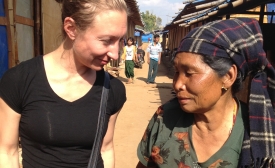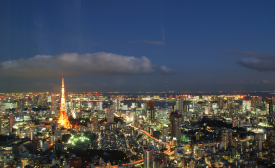Asia Pacific

In recent weeks, warfare in Burma’s Kachin State has increased and is now making its way closer to the Burma-China border. While the international community has paid little attention to the Kachin conflict over the past few years, understanding its complexity is now more important than ever. Failing to do so could have dire implications on the lives of Kachin women, and on diplomatic relations in the region.
Hawaiian slack key guitar ensemble Keola Beamer toured Brazil in April with the American Music Abroad program. CPD Blogger Paul Rockower describes what happened next.

I was delighted to read the CPD Blog written by Anja Eifert on

It is Tokyo, after all. It was nearly 6am when a few thousand supporters gathered at Komazawa Stadium, one of the key venues for Tokyo’s 1964 games, exploded in celebration as International Olympic Committee Jacques Rogge held up the winning envelope marked “Tokyo 2020." With Madrid ousted at the first round, the Tokyo-Istanbul competition boosted the hopes of the Japanese bidders that eventually took the final vote by a large margin: 60 to 36.
Talking to a Chinese taxi driver is always interesting as they know what is rotten in the Middle Kingdom and speak up candidly. Sometimes these conversations are also interesting for students of public diplomacy, especially when concerned with the image and impression of a country.
BEIJING – The 3rd Beijing International Film Festival was a public diplomacy showcase this week for Chinese cinema at its best. Banners throughout the capital promoted the festival, the awards ceremony and, not least, the film-selling market in a country that now proudly proclaims itself as the world’s leader in movie theater revenues, ahead of the U.S.
And yet, and yet…
Two recent books on China and India have highlighted the rising importance of public diplomacy within the foreign policies of these rising Asian giants. Taken together, U.S. academic David Shambaugh’s China Goes Global and Indian writer and Member of Parliament Shashi Tharoor’s Pax Indica reveal some telling differences between the way both governments approach the pursuit of soft power. Both books suggest quite divergent outlooks for the two governments in their search for global influence through PD in the coming years.
APDS Blogger: Sarah Myers







